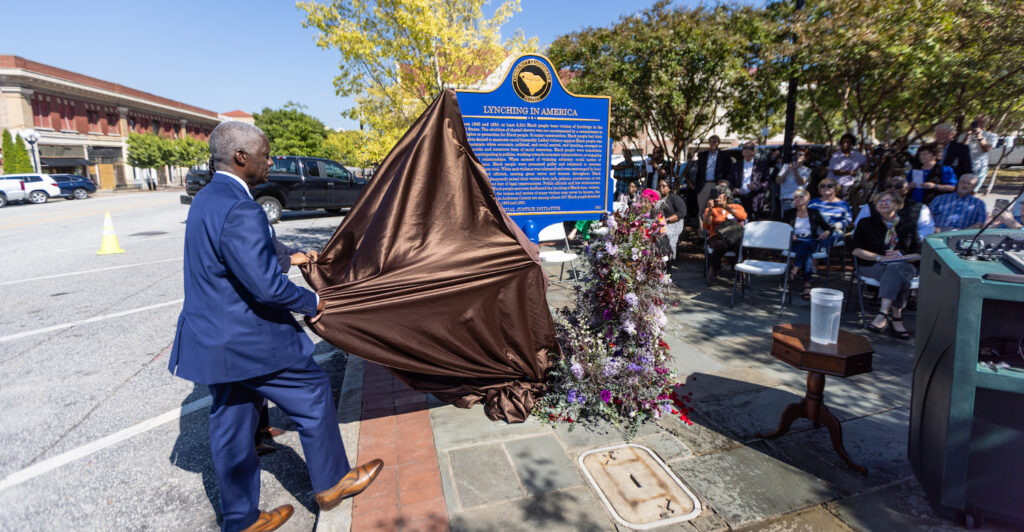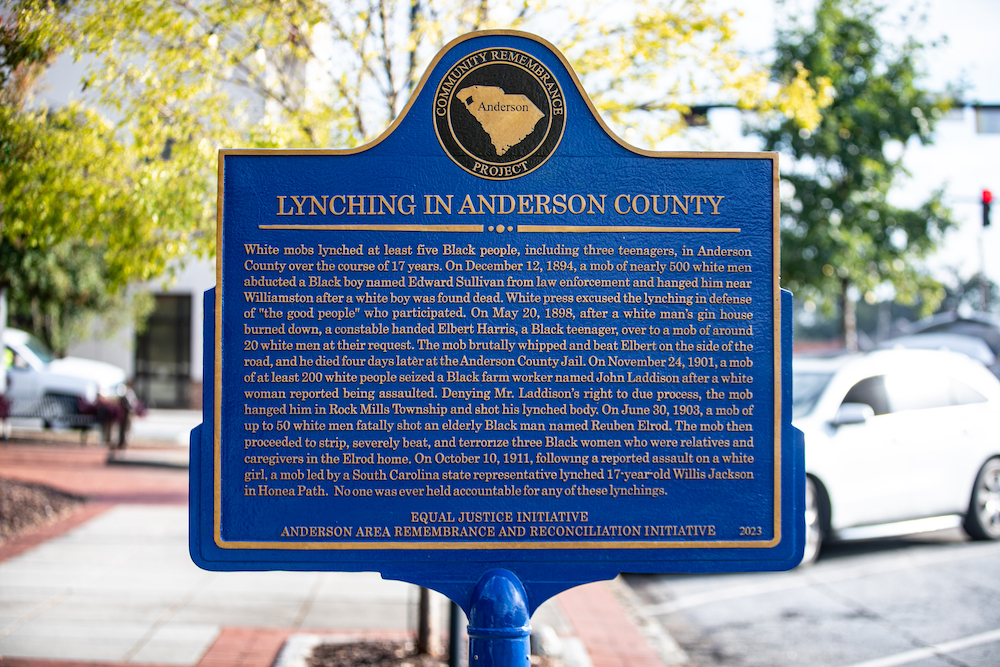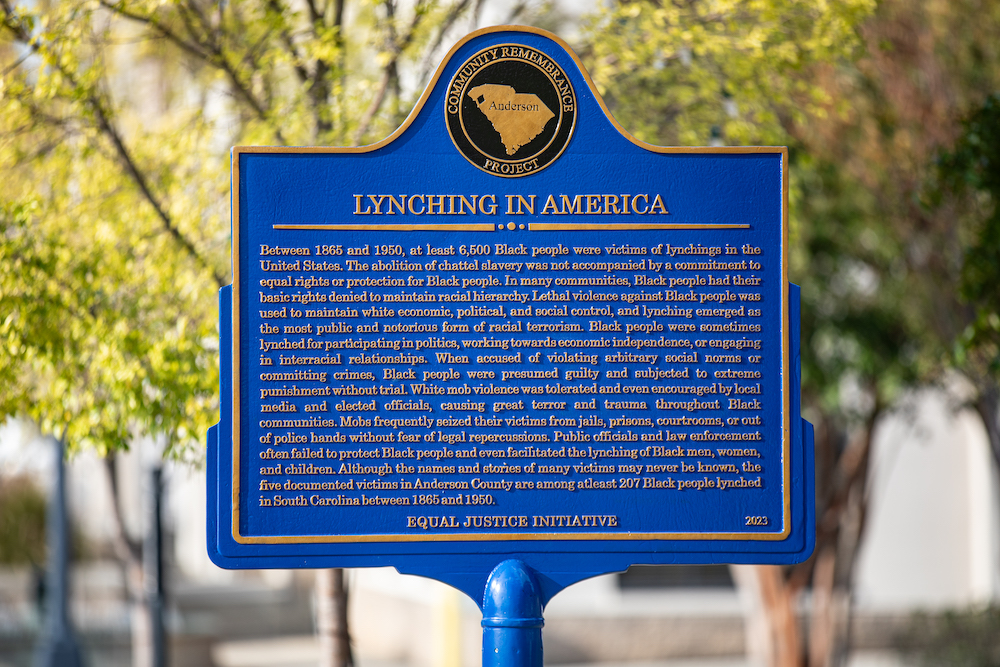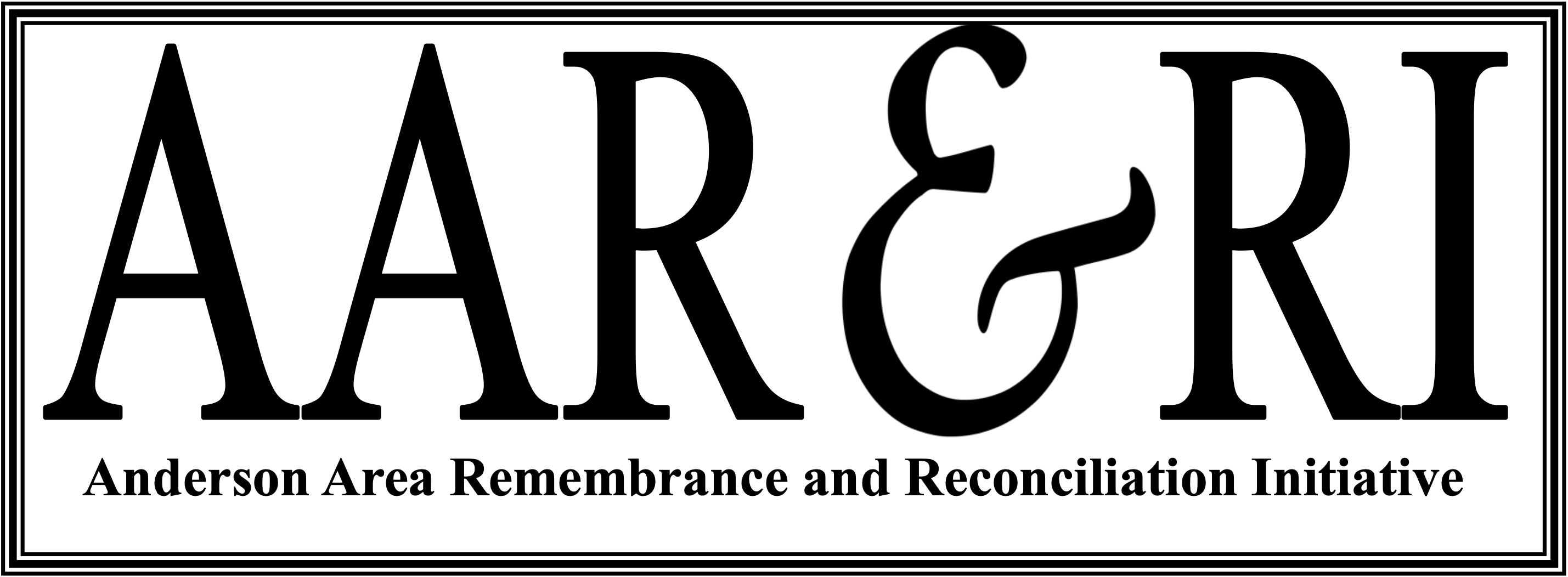
Tuesday. October 3, 2023 was an amazing day in Anderson County. A permanent marker memorializing the five victims of racial terror lynching was revealed to the community during a ceremony in downtown Anderson.
Among those in attendance were city leaders, county leaders, faith leaders, law enforcement, citizens…a diverse crowd of individuals committed to remembering those who lost there lives to racial terror lynching here in Anderson County.
Mr. Terrence Roberts shared, “Today, we are proud to unveil a permanent historical marker in honor of the fire victims that was settled in 1894. Mr. Albert Harris 1898. Mr. John Ladson 1901. Mr. Reuben Elrod 1903. And Mr. Willis Jackson 1911. I want to say thanks to all that have participated in this and who share the vision of truth and reconciliation as a portal to a brighter future.”
The Anderson Area Reconciliation Initiative has worked with the Equal Justice Initiative, DJI in Montgomery, Alabama, to identify and honor the five known victims of racial lynching and Anderson County from 1894 to 1911. With the vision of Stuart Sprague, a local group of volunteers launched a research project in 2021 in partnership to find appropriate ways to foster dialog, promote education and encourage conversation.
Members of the Anderson Area Remembrance and Reconciliation Initiative (AAR&RI) aim to raise awareness and inspiration for acts through dialog and community education. Over the last three years, the group has hosted many opportunities for the community to coalesce around the vision, including a Juneteenth celebration, panel discussions, soil collections, interpretive readings, poetry, art and a major sculptural piece by Herman Keith Jr. that has traveled to locations around the county to encourage and inspire.
Mr. Deksyos Damtew came from the Equal Justice Initiative (EJI) in Montgomery, Alabama to join the ceremony and spoke about the history of EJI and how this growing mission is represented in the work done here in Anderson County.
“The Equal Justice Initiative was founded in 1989 by executive director Mr. Bryan Stevenson in response to a crisis on Alabama’s death row. At the time, nearly a quarter of all executions that were happening across the country were happening here in Alabama. Over time, we took on other challenges in expanding from just representing people who are on death row to folks who have been wrongfully convicted, unfairly sentenced, and eventually children who are sentenced to life without parole.”
He continues to share, “As we can see, racial terror lynchings has impacted all of us. And between 1865 and 1950, the Equal Justice Initiative documented 6500 instances of racial terror lynchings over the years. We decided that it is important that we come together with communities across the United States to erect markers like the one that we are here to witness today, to honor the lives of lynching victims. Like the five men we are here to honor today. To understand the violence and the brutality that occurred and to hopefully move toward an era of truth telling where we confront the history of racial injustice in this country. Today, I is proud to work with over 200 communities in advancing this mission of truth telling, and I am excited to include Anderson County as one of those communities.”
Dr. Stuart Sprague, the visionary behind AAR&RI’s mission, came to the podium to transition the conversation from remembering our past to our forward movement towards reconciliation.
“The Oxford English Dictionary defines reconciliation is to bring you again into friendly relations with another after a period of estrangement. Five black men being lynched in 17 years qualifies as a strange man. The estrangement continued through the Jim Crow era of segregation in the South. It continues today in terms of despair, in health, wealth, education, incarceration and other social measures of well-being.” He goes on to share, “Projects like this are projects initiated by this group have had a positive effect on our community and they help to ensure that nothing like the racial terror lynchings that we remember today will ever happen again. As Jesus points out in the passage from Matthew, true reconciliation is a person to person experience. It’s not something at a distance or over Zoom, which is a new way for us to relate to each other.”
Links to the photo galleries to see all the activity from the event:
- Bobby Rettew’s photo gallery (CLICK HERE)
- Independant Mail photo gallery by Ken Ruinard (CLICK HERE)


